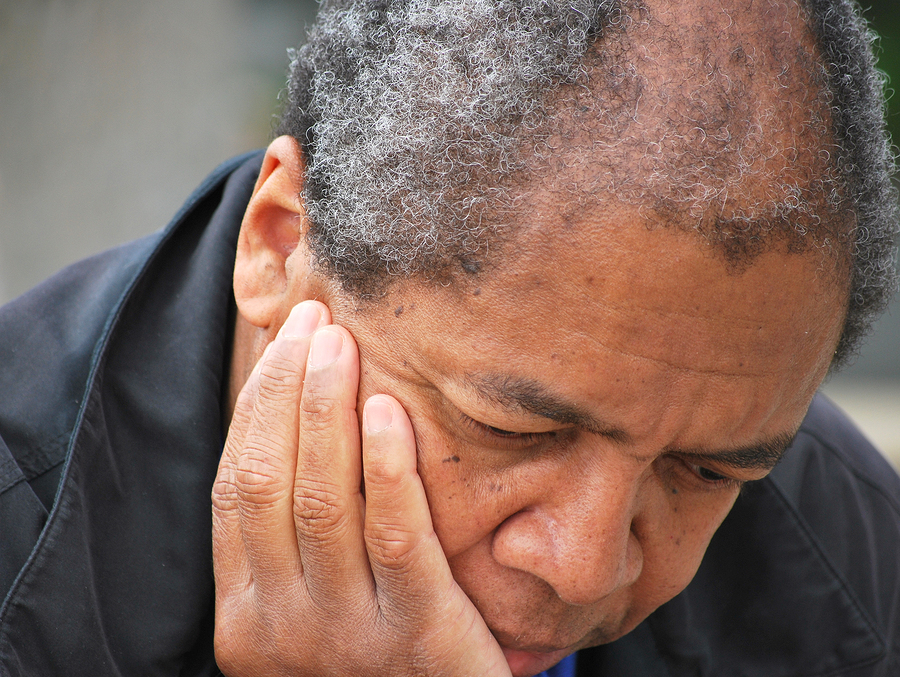
Depression Symptoms in Men
November is also “Movember.” You may think Movember is all about not having to shave all month, but the core of the Movember movement is to open up the conversations around men’s health issues that are often difficult to talk about. They include issues such as testicular cancer, prostate cancer, and depression. If your loved one is living at an assisted living facility his caregiver provider should be aware of his depression symptoms.

Caregiver Greenville SC – Depression Symptoms in Men
If you’re a caregiver for an elderly loved one who is a man, it can be difficult to know if he is suffering from depression and could be prone to suicidal thoughts. Even if you’ve dealt with depression in the past, depression can look a lot different for men, and because of cultural stigmas, many men aren’t comfortable talking about “feelings,” especially if those feelings reflect a vulnerability. It might cause you to have to be a bit of a detective as you care for your loved one.
Here are some common symptoms of depression in men and some tips you and their caregiver might use to help your elderly loved one feel comfortable opening up to you about how he is feeling.
Being angry or reckless behavior
While you might not consider anger as a depression symptom, in many men, depression displays itself in anger or irritability. If your loved one is losing his temper with his caregiver team or is disagreeable all of the time, he could be battling depression.
Your loved one might start drinking too much or driving too fast. He might begin to act as if he doesn’t care about the consequences of his actions.
Loss of interest
Many men withdraw when they are depressed. Activities that they used to enjoy, like playing cards with his home care assistance provider, or taking the dog for a walk in the morning, suddenly don’t appeal him to anymore. He may turn down invitations to events he always loved attending like church or family events.
A change in sleeping patterns
When depressed, your loved one might start sleeping a lot more or on the other spectrum, lose the ability to sleep well at night because of anxiety and worry. Whether he’s sleeping too much or too little, he might have little energy to do anything during the day and only want to sit and watch TV or play video games for hours on end. He may not say he’s tired, but you or his caregiver team will notice that he doesn’t have energy like he used to. Even simple things like putting together a meal may seem to be exhausting for him.
Opening up the conversation with your loved one is the best way to start the healing process. Your elderly loved one may need to find someone he already cares about to share his true feelings with before he can talk to a licensed provider. Or on the flip side, he may not want to share his true feelings with those he loves and would rather talk to a professional. Letting your parent know you notice something is off in a gentle way is a great way to start the conversation. Even if he says he’s fine, keep asking as long as you see the behaviors with the hope that he will find the right person to open up to even if it isn’t you.




